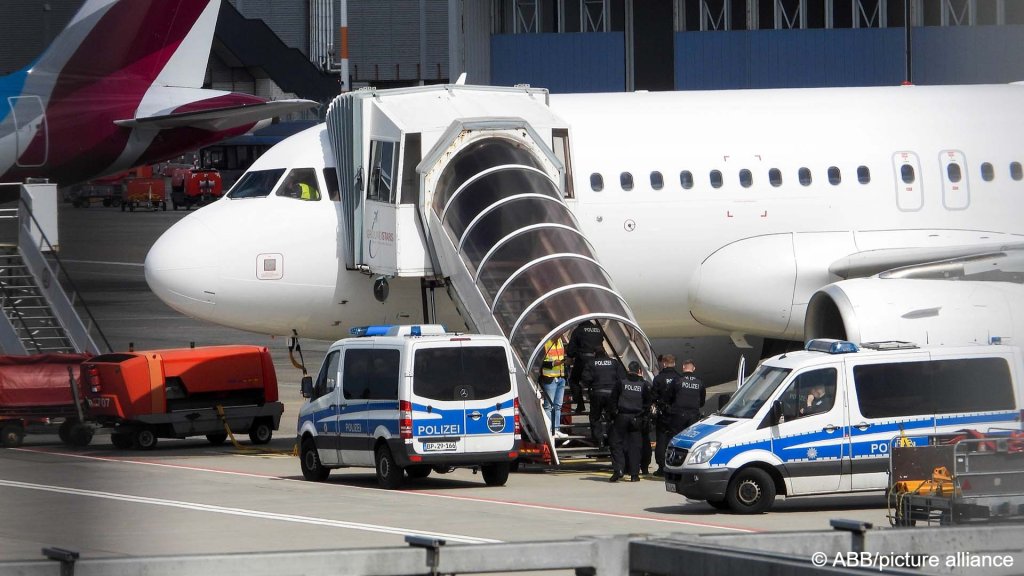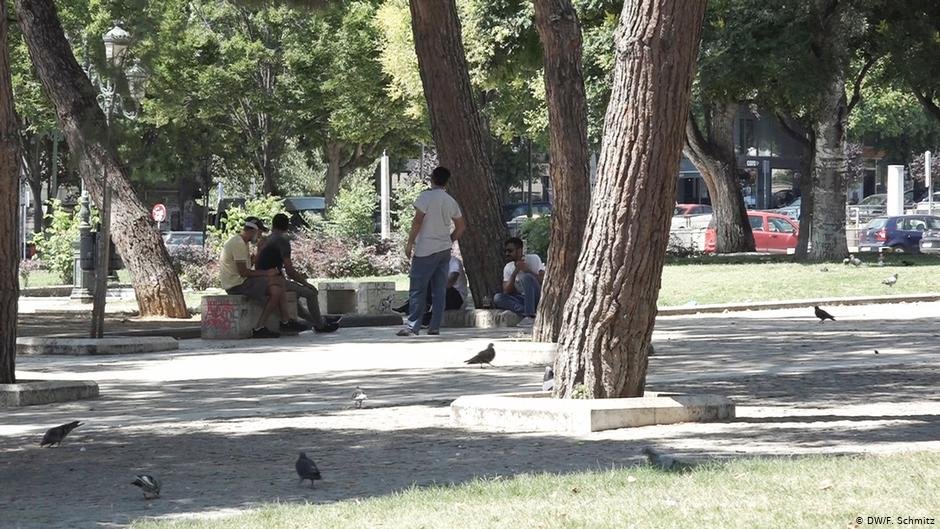More than a quarter of asylum seekers return to Germany following transfers to other EU countries under the Dublin III Regulation. The regulation stipulates that asylum seekers must have their case processed in the first EU country they entered. It will be replaced by new rules included in the EU's migration pact.
In Germany, a response from the government to an inquiry by the Left Party (Die Linke) revealed that, as of fall 2024, over 15,000 foreign nationals who had previously been transferred to another EU country under the Dublin III Regulation were again residing in Germany. Of these, more than 4,000 individuals re-entered Germany in 2023 and 2024 after being sent to other EU countries. Italy accounted for the highest number of previous transfers, with 3,300 individuals returning to Germany, followed by Poland, with 2,192 cases of returning asylum seekers.

Only about one-third of these individuals (5,131) were legally required to leave Germany as of October 31. Many others remained due to temporary "tolerated status," known as a "Duldung," granted for reasons such as secondary asylum applications, a lack of valid travel documents, or other humanitarian or logistical considerations. Among those returning to Germany after a Dublin transfer, the largest groups were nationals of Russia, Afghanistan, and Iraq. A total of 1,747 individuals were granted tolerated status while awaiting further resolution of their cases.
Clara Bünger, a member of the Left party, noted that in fact fewer than 6,000 refugees in Germany were scheduled for deportation to other EU countries for asylum processing. She argued that this figure challenges the intense political rhetoric surrounding asylum seekers, which often portrays the issue as an overwhelming "crisis."
Read AlsoYemenis in Calais: caught between war and deportation
The end of Dublin
The Dublin Regulation -- which determines which EU Member State is responsible for processing asylum claims -- was designed to prevent "asylum shopping." However, under the EU's new Migration Pact, the Common European Asylum System (CEAS) will be reformed in an attempt to spread the responsibility for hosting asylum seekers more evenly across member states and to lessen the burden on countries at the EU's southern border.
The new rules replace the Dublin system, encouraging flexible contributions like relocation, financial aid, or technical support. The Migration Pact introduces a streamlined EU Resettlement Framework, allowing countries to voluntarily resettle vulnerable refugees from non-EU countries.
Read AlsoThe new EU Asylum and Migration Pact -- questions answered
Returning refugees to Greece 'unreasonable'
Greece is one of the main EU countries from which many asylum seekers arrive in Germany. In the first 10 months of 2024, at least 21,110 individuals filed asylum applications in Germany after first being registered in the EU in Greece.
Asylum seekers and recognized refugees face relatively poor conditions in Greece, one of the countries with the lowest per capita income within the EU.
In August 2024, a court in Gelsenkirchen ruled that returning refugees to Greece was "unreasonable" as they would likely "be unable to find secure accommodation and unable to support themselves through legal employment or government support."
Germany also previously suspended Dublin transfers temporarily in 2015 for Syrian asylum seekers, and again during the coronavirus pandemic in 2020.

UK destination for those seeking to evade Dublin regulation
Since the UK is no longer part of the Dublin system after Brexit, individuals who have had their asylum claims rejected in an EU country can now apply in the UK without being returned to their first country of entry under Dublin rules. This shift has arguably made the UK a more appealing destination for secondary migration from other EU countries.
While InfoMigrants was reporting in Calais several Syrian migrants recounted the difficult living conditions they faced in Cyprus, Greece, and Italy. They explained that Dublin III was the main reason why they were attempting to reach the UK, after a failed attempt to apply for asylum in the Netherlands, where they found themselves subject to the Dublin III rules. Many migrants in Greece and Italy face homelessness, which prevents them from finding work leading to a vicious cycle of unemployment and poverty.
Difficult to enforce
Circular migration, where migrants return to wealthier EU countries like Germany despite transfers elsewhere, has been a point of contention in debates among European politicians.
Disparities in asylum systems and living conditions across EU member states can lead to secondary migration, particularly to countries perceived as offering better opportunities or support. Humanitarian concerns, such as those identified in Greece, have also prompted courts to intervene and block transfers.

In December 2024, Germany's Interior Minister Nancy Faeser visited Greece and met with Migration Minister Nikos Panagiotopoulos discuss migration. During the visit, they highlighted Greece's crucial role in the EU's asylum system, focusing on strengthening border security and curbing secondary migration to Germany.
Read AlsoGermany: Significant changes for refugees and asylum seekers in 2024
With dpa
